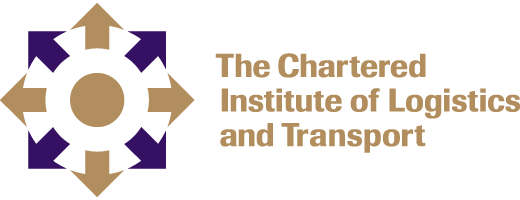Tough as it may sound, the Covid-19 pandemic is teaching businesses to either shape in or ship out. The need for business continuity and management of risk has thrown up ethical and moral questions on how business continuity initiatives should be balanced with the continued safety of business operators. Just as the challenges of the pandemic have thrown up a myriad of negative upshots for many businesses, they have opened up prospects for new buoyancy and flexibility for others. However, it is important to ensure the well being of people as we try to sustain businesses. Businesses can only thrive where and when the capabilities and competences of their operators are ensured, and only if their wellbeing is assured.
The impact of Covid-19 continues to take a toll on businesses as reflected in the disruption of supply chains, distortion in logistics and transport systems, the inability of firms to sustain production, underutilisation of capacity, reduced income earnings, job losses, etc. People have been affected economically, socially, emotionally and health-wise. Reynolds Shodeinde, CMILT, examines the impact of the Covid-19 pandemic on Nigeria and considers the attributes and skills required for business survival:
General Overview of the Covid-19 Crisis in Nigeria
Health: there is a rising rate of transmission and deaths globally and in Nigeria; low compliance with the mitigating guidelines regarding the pandemic, insufficient testing capacity, poor medical support structure, limited protection for frontline health care workers resulting in the depletion of response capacity.
Economic: Micro and macro-economic instability, job loss, loss/decline in earnings and remittances, inflation, currency devaluation, food and products price hikes, all leading to serious economic impact in the short, medium and long-term, disruptions of supply chain for import and export of raw materials and products, processing, material packaging and distribution, etc.
Social: There are rising rates of domestic violence, unwanted pregnancies, restiveness and crime, education challenges for teachers and children without access to technological devices, electricity and affordable internet, labour losses.
Emotional: Mental/psychological health challenges from social distancing and separation, challenges of working from home, difficulties associated with lockdowns, health guidelines being viewed as discomforting, fear of being infected and general anxiety from helplessness.
Critical Issues for Businesses and Entrepreneurs
Some of these critical issues are obvious threats while others are harbingers of opportunities.
Cash Flow Management: some of the issues include:
- Ability to pay salaries during the lock down.
- Ability to ensure health and safety of workers.
- Ability to leverage technological innovation for operational sustainability during the COVID-19 pandemic.
- Ability to improve on human capital development.
These issues confront businesses concerned with how to cope during Covid-19 and how to navigate through the pandemic for a buoyant post pandemic era.
Cost Management: some of the issues include:
- Supply chain management with an opportunity to create digital pathways to link farmers with inputs, processors/manufacturers with raw materials, equipment and medicines with health facilities, drivers of commodities for delivery with distributors of products and services, etc.
- Opportunities to renegotiate rents, leases and loan repayments.
- Opportunities to leverage available resources.
- Opportunities to adapt, rebuild, and strengthen business models to avoid future shocks.
- Opportunities to create reliable social values and positive community impact in the Covid -19 era.
Acknowledging the requirements for significant changes in job patterns and work processes (and embracing them) will determine the survival of businesses during and post the Covid-19 period. Therefore, seizing the opportunities of the crisis will evidently aid entrepreneurs to good recovery from this pandemic which has been touted to last for 12 – 18 months according to global experts.
Attributes and Skills for Survival Now
In times of crisis such as the one the world is experiencing with the Covid-19 pandemic, certain attributes are key for recovery and sustainability, and it is critical for businesses and their leaders to exhibit these qualities in order to realize real growth:
- Adjust Vision
- Disrupt, Recalibrate, Retool and Redesign
- Collaborate
- Empathize ( with internal members and external customers)
- Innovate technologically
- Seek interventions
- Develop new business models
We must shift our mindset from the survival mode to the thrive mode, and ultimately to the legacy mode, where the entrepreneur does not think of success in the context of his business alone but is concerned with the success of the industry as well as the nation, where the entrepreneur stops thinking of the immediate breakthrough but in terms of lasting intergenerational business wholesomeness. This is the very how of building resilience in and absorbing future shocks in our businesses.
Realise that technology and data are more critical now than ever before. Agility and the ability for quick decision making must be prominent features of business, as is value addition to product or service, and the improvement of cost efficiency. Service and product should be more demand driven because customers are sensitive now as disposable income is getting less available. It should be noted that adaptation to soft skills can aid resilience notably. Required soft skill will generally include:
- Better relationship management,
- Ability to communicate better,
- Emotional intelligence and
- Commitment to excellence.
Action Required for Business Continuity and Risk Management at this time
Entrepreneurs:
- Ensure health and wellbeing of all employees and other critical stakeholders – there must be changes in methodology, work style and workplace/organisational engagements: new rules, new by-laws and new guidelines.
- Stabilise business – immediate actions that preserve cash, that give confidence to customers and employees geared towards business continuity.
- Build resilience – invest in technology, insurance, risk mitigation practices and adaptable strategies.
- Adapt to the new reality – sell off weak assets, merge units, streamline entities, integrate a forward-looking approach.
- Shape your business ecosystem – engage in policy transformation and implementation, support government at local, state, national and regional levels in planning, plan the future of your industry or business.
Employees:
- Retool – gain a new skill using all the free global training available to you.
- Read widely – build your expertise using free global libraries, invest in professional books.
- Re-invent – as your role and functions begin to require changes, your approach should equally change in these days by adaptations that keep you ahead through the new normal.
- Build a support system and invest in relationships that will buoy you at times like this – make a constructive contact through emails, scan for vital information on WhatsApp platforms, follow icons and mentors on line, build a meaningful support base and maintain a network of holders of dreams akin to yours. All these are possible without being sunk by social media.
- Enhance your productivity to become a good asset to your organisation.
- Again, shape your ecosystem – write articles, produce videos and invest in enhancing and sustaining your organisation’s visibility and operations respectively. You may not be able to relate with government directly. You can organise webinars and open virtual pages to discuss possible ways out of the pandemic in your business and industry, get involved in positively turning around your own little space in the supply chain.
Covid-19 is certainly problematic to the smooth running of business at present. However, it should not be unbearably incapacitating. If businesses show sufficient will to succeed by adapting in accordance with the espoused tenets, we will survive the pandemic. The future of businesses may not be as in the past. It will be different and will take getting used to until it becomes usual. It will be the new normal within which businesses will thrive again.
This is an example of analysis from Nigeria, prepared by Reynolds Shodeinde, which we are sharing as part of our global best practice resource to help you think about and determine appropriate responses locally

